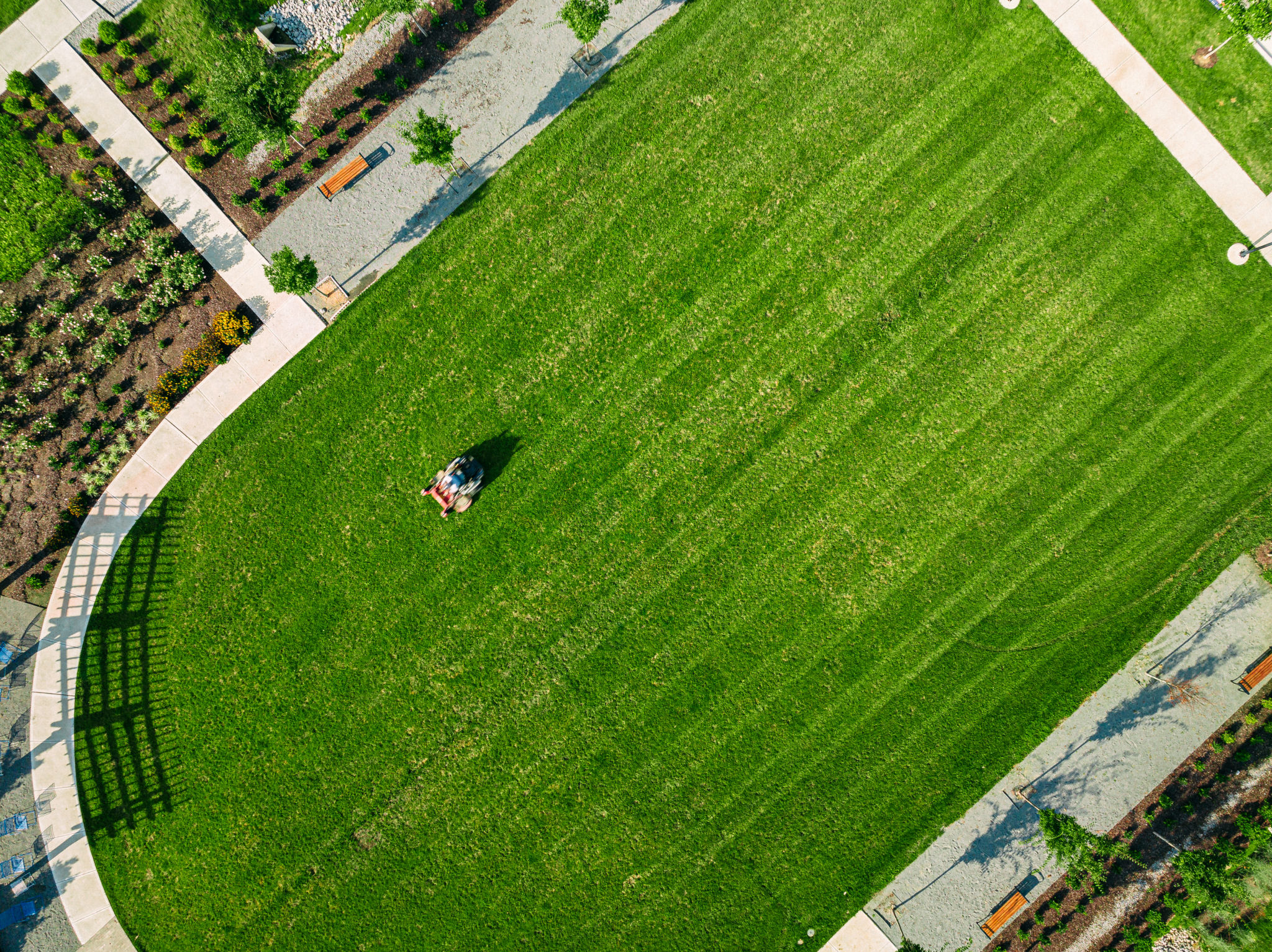Expert Tips for a Lush Lawn in Fredericksburg's Climate
Understanding Fredericksburg's Climate
Fredericksburg, with its unique temperate climate, presents specific challenges and opportunities for lawn care. The area experiences hot, humid summers and mild winters, which means lawns require particular attention to thrive year-round. Understanding these climate nuances is crucial for maintaining a lush, green lawn.

Choosing the Right Grass Type
One of the first steps in achieving a lush lawn is selecting the right type of grass. In Fredericksburg, warm-season grasses such as Bermuda and Zoysia are popular choices due to their heat tolerance and ability to withstand drought. For those who prefer a mix, consider overseeding with Ryegrass during the cooler months to maintain a vibrant green color.
Benefits of Warm-Season Grasses
Warm-season grasses are particularly well-suited for Fredericksburg's climate. They not only thrive in the heat but also recover quickly from foot traffic and other stresses. It's important to water these grasses deeply but infrequently to encourage deep root growth.
Effective Watering Techniques
Proper watering is crucial for lawn health. In Fredericksburg, efficient watering can make a significant difference. Early morning watering is ideal, as it minimizes evaporation and allows grass to absorb moisture before the sun becomes too intense. Aim to water your lawn with about one inch of water per week, adjusting based on rainfall.

Smart Irrigation Systems
Consider investing in a smart irrigation system that adjusts watering schedules based on weather conditions. These systems help conserve water while ensuring your lawn receives adequate hydration.
Regular Mowing Practices
Mowing plays a vital role in maintaining a lush lawn. Set your mower blade to the recommended height for your grass type to avoid cutting too short, which can stress the lawn. Regularly sharpen mower blades to ensure clean cuts and prevent grass damage.
Mowing Frequency
During the peak growing season, lawns in Fredericksburg may require mowing once a week. However, be mindful not to remove more than one-third of the grass height in a single mowing session to maintain healthy growth.

Fertilization and Soil Health
Fertilization is key to providing essential nutrients that promote a lush lawn. Conduct a soil test to determine nutrient needs and apply a balanced fertilizer accordingly. Typically, fertilizing in spring and fall is most effective for warm-season grasses.
Organic Fertilizer Options
For those interested in sustainable practices, organic fertilizers are an excellent choice. They improve soil health by adding organic matter, which enhances soil structure and nutrient retention.
Pest and Weed Management
Pests and weeds can quickly undermine your efforts. Implement an integrated pest management approach that includes cultural practices, biological control, and chemical methods when necessary. Regularly inspect your lawn for signs of pest activity and address issues promptly.
Chemical-Free Weed Control
For those looking to minimize chemical use, consider natural weed control methods such as hand-pulling or using vinegar-based solutions. Mulching around garden beds can also help suppress weeds effectively.